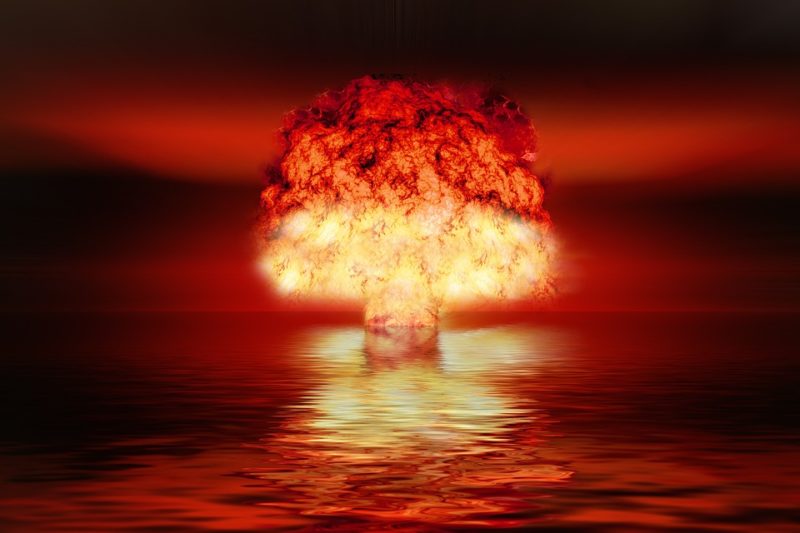What causes a water heater to explode? Issues may arise from the device because of corrosion and rust, internal pressure, sediment and mineral build-up, and more. The causes often differ from one situation to another.
But the root causes are the ones mentioned. When these go beyond control, the water heater may soon explode. Remember that the water heater operates at a dangerous and high pressure and temperature.
Monitor it properly because if not, it can cause a severe explosion. The device blows up because of adequate force that it lands several blocks away. Thus, the cause is severe damage to the structural integrity of your home. Debris, scalding water, and explosion force are scary if you do not properly maintain the water heater. Let us discuss more on this below. Keep reading!
Causes Of Water Heater Explosion
So, what causes a water heater to explode? Below are the significant issues that can cause the water heater to explode:
#1. Corrosion and rust
The majority of tanks in a water heater are manufactured from iron and steel, meaning to say, elements rust in the coming years. The system has sacrificial anode rods to safeguard the internal components in the tank. The anode rods begin to rust because of wear and tear. That leaves the water tank more vulnerable because of eventual corrosion. The effect is you begin to notice the hot water comes out rusty or muddy.
#2. Internal pressure
A dangerous high internal pressure level causes the device to lift off like a rocket. The T&P valve maintains the system’s integrity while the valve emits the water that checks the pressure. A malfunctioning valve causes the high-pressure gas build-up, thus the device bursts into the roof. This problem tends to occur more if the T&P valve opens and causes leaks.
#3. Sediment and mineral build-up
Sediments and minerals are more likely to occur inside the tank if you fail to flush the device regularly. Additional debris layer makes it hard for it to emit heat that causes inefficiency in the system. The water heater tends to overheat and afterward deteriorate. Banging and knocking noises are most likely to be heard in the system if this is the cause of the failure.
#4. Extreme thermostat setting or pressure relief valve malfunctioning
The water heater tends to explode if you set the thermostat’s temperature too high. The same is true if the pressure relief valve is malfunctioning, as this is more likely to occur in the electric water heater and gas water heater. The malfunction is because of blockage in the pipe or failure in pressure release in the tank. The water turns to gas after it heats up. Too much heat and pressure is something the water tank cannot withstand that it emits off pressure in the pressure relief valve. The blocked or broken valve does not release the pressure that it increases in pressure and explodes.
#5. No or improper maintenance
Maintenance is essential in the life of the water heater. It also potentially avoids issues such as explosions as they take place. With frequent use and age, the water heater ends up building up mineral deposits. The sediment settles underneath the water heater tank. Thus, draining in the tank occurs when sediment hardens even more when left unchecked. The corrosion eventually occurs, particularly in the inner lining. The water heater weakens entirely. The tank walls that get too weak turn the tank into a more susceptible explosion, particularly in normal pressure levels. The T&P valve does not matter in normal water pressure levels, since the pressure is not high enough that triggers it. Routine maintenance is essential for the water heater’s performance. It does help avoid issues such as explosion and double the device’s lifespan.
#6. Failure in the high limit switch
The high limit switch’s location is on top of the upper thermostat, the red button. Without it and the thermostat, regulation of the heating elements is not possible. The temperatures can increase because of unsafe levels. The high limit switch works as it trips and cuts the power in the thermostat and heating element. It gears to reduce after it hits 180 degrees. The temperature gets hotter the moment it fails. It then heats the water and increases the temperature. The thing is that it takes the high limit switch and the T&P valve to fall and explode. In the case of an old water heater, it cannot have safety features.
#7. Flammable chemicals
Do not keep the flammable liquids next to a gas or propane water heater, as this is something you should understand the most. A gas leakage heat develops with volatile chemicals creating a dangerous explosion. The water heater explosion is terrible in that volatile chemicals also mean the entire house will go up. It may be helpful to read about sizing a new water heater.
It’s a Wrap!
Now you learn what causes a water heater to explode, such as the flammable chemicals, failure observed in the high limit switch, improper maintenance, internal pressure, and corrosion and rust. Be wary of these things occurring and fix them immediately before it’s too late. You may want to read related articles; know how long to drain the water heater and how to get the sediment out of water heater.

